CONSTELLATION – Season One
An astronaut returns to earth after a disaster in space and discovers that there are missing pieces in her life, so she sets out to expose the truth about the hidden secrets of space travel...
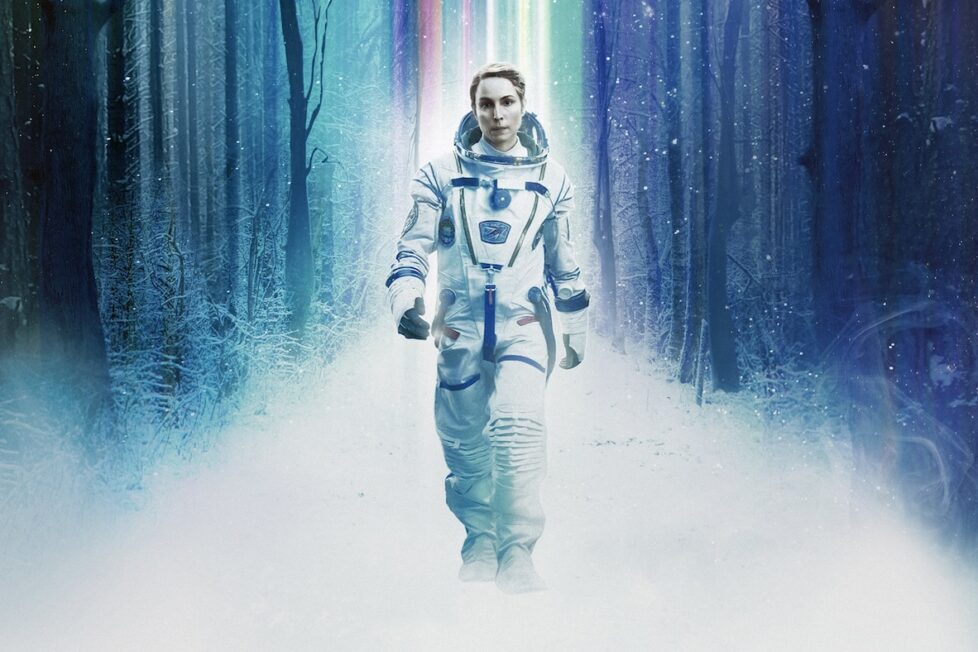
An astronaut returns to earth after a disaster in space and discovers that there are missing pieces in her life, so she sets out to expose the truth about the hidden secrets of space travel...


Apple TV’s Constellation, an eight-part television series, is the latest entrant in the science-fiction subgenre known as a “multiverse” story—the notion, derived from quantum theory, that our known universe is only one of many other realities, some of which may mirror ours.
The theory has been dramatised in numerous films and TV series dating back as far as the original Star Trek (1966-69). One of the more recent examples is Netflix’s Dark (2017–2020). Better known is the ‘Best Picture’ Academy Award winner Everything Everywhere All at Once (2023), which threw together alternate realities in a frenetic slapstick blender that, for some, wore out its welcome by the end.
The multiverse theory is certainly fascinating. While it might never be scientifically proven, it could explain certain paranormal events. For example, what we call ‘ghosts’ are perhaps glimpses of people living their lives in another realm of Space and Time, equally real but inaccessible, glimpsed as if through a membrane or a smudged window.
Constellation makes that idea its central premise: what we think of as ghosts aren’t departed spirits but alternate versions of us, alive and well, living not in our world, but in another. And thanks to the chaos of quantum physics, they just might end up in our world.
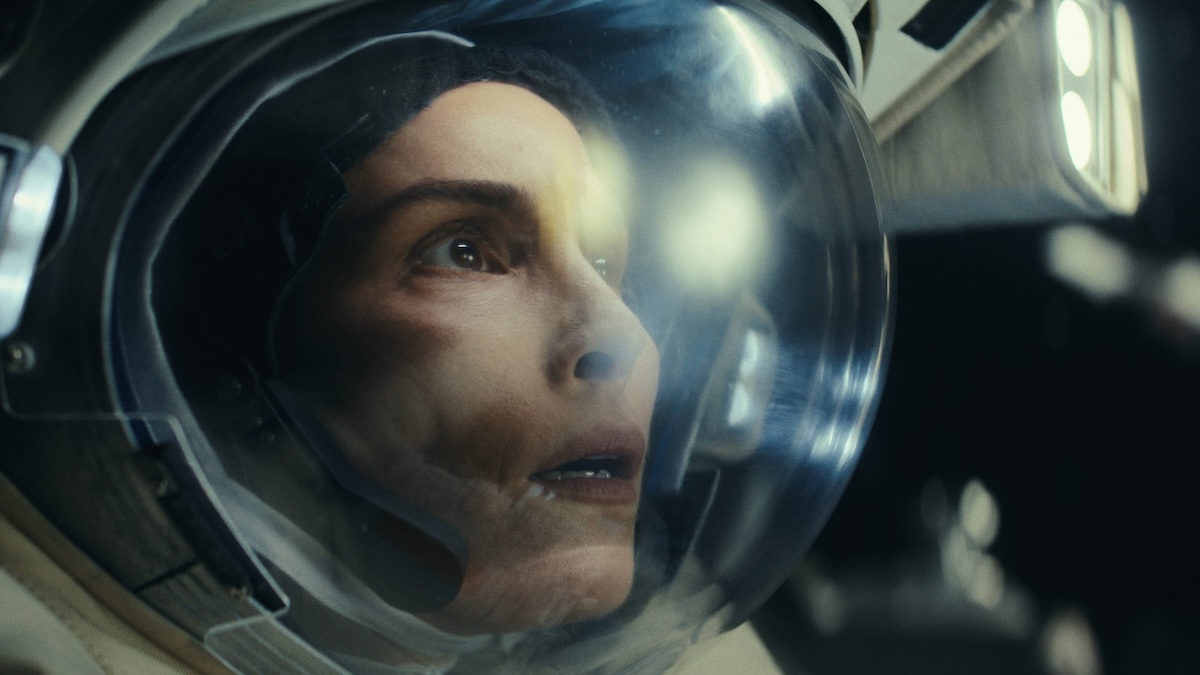
The series opens in medias res with Jo Ericsson (Noomi Rapace) driving through a snow-covered Swedish winter night, accompanied by her reluctant daughter, Alice (Davina Coleman), and a mysterious glowing canister. Shortly after they arrive at a remote, snowbound cabin, an eerie scream from across the frozen lake compels Jo to rush out onto the ice alone to investigate.
We are then taken back five weeks to the International Space Station, 270 miles above Earth, where Jo is a European Space Agency astronaut. Among the onboard experiments is the Cold Atom Laboratory (CAL), based on an actual experiment, which aims to reveal the behaviour of atoms at the quantum level in extreme environments.
Seconds after the latest CAL experiment begins, a sudden collision severely damages the ISS’s life support systems, jeopardises contact with mission control, and fatally injures the commander (William Catlett). Venturing on a spacewalk to assess the damage, Jo discovers the desiccated corpse of a USSR cosmonaut from the 1960s. It’s sucked into the cosmic void before she can even take a photograph as evidence.
With only space for three in the Soyuz capsule, the three Russians return to Earth, leaving Jo behind, with just a few hours left to repair the other capsule and get home. She must also retrieve the CAL device at the behest of Henry Caldera (Jonathan Banks), a former astronaut, Nobel Prize winner, and crusty, cold-blooded NASA scientist whose priorities don’t lie in astronaut safety.
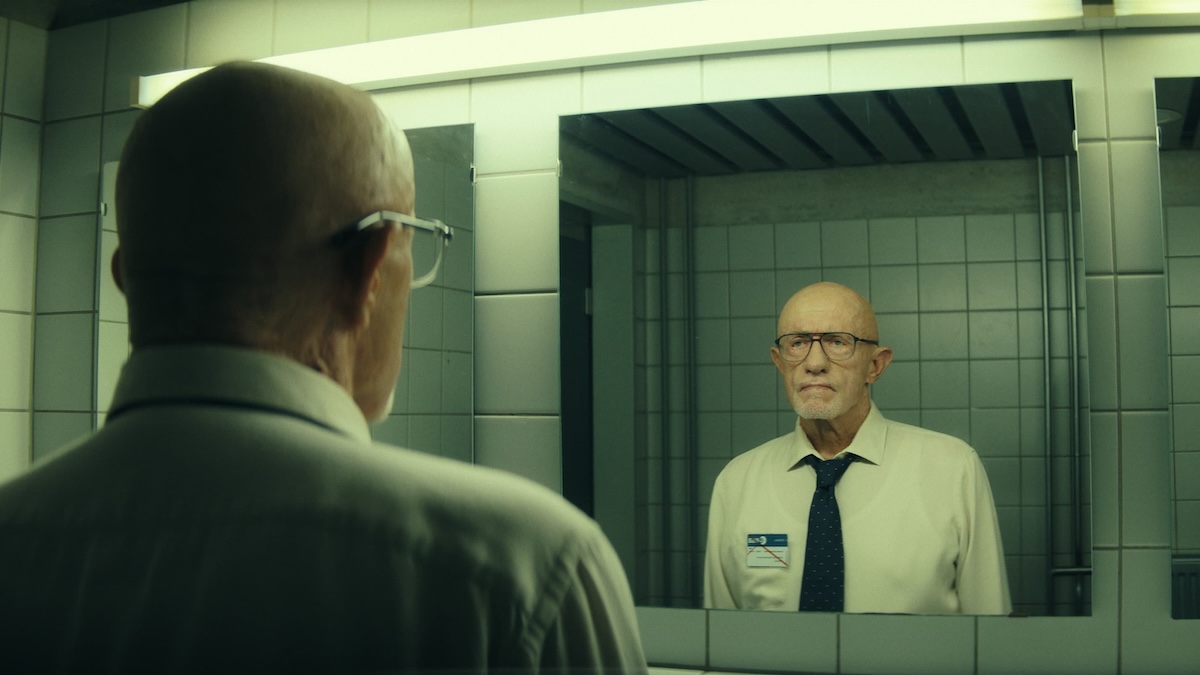
In the meantime, Jo faints and loses track of valuable time. Mysterious noises emanate from inside the damaged ISS. She experiences disturbing hallucinations. Eventually, time runs out for her. However, although ground control has presumed her dead, she miraculously makes it home with the precious CAL device.
Back on Earth, Jo feels like an alien and seems like one to others. Her husband, Magnus (James D’Arcy), and daughter Alice (now played by Rosie Coleman), appear strangers to her as she does to them, no longer even speaking her native Swedish. Her account of the dead cosmonaut is dismissed. Everyone thinks she’s having a nervous breakdown (known as “space psychosis”) but for her, something is seriously wrong.
Meanwhile, Henry Caldera’s obsession with CAL intensifies. He’s unable to replicate the startling results he observed at the time of the collision, just as Jo’s unable to prove she saw a dead cosmonaut from the 1960s. To add to the mystery, he has an identical twin, Bud Caldera, who, like Henry, is a former astronaut, but whose life has gone nowhere as he grovels for attention at a sci-fi fan convention while being forced to debate a tiresome conspiracist.

These two characters provide the core around which Constellation revolves. On a craft and technical level, the show is a smashing example of teamwork. The CGI effects are near-perfect and the details of life on the ISS look real down to the last nut and bolt. The direction by the three helms—Michelle MacLaren, Joseph Cedar, and Oliver Hirschbiegel—is swift and fluid, while the cinematography by Frank Lamm, Yaron Scharf, and Markus Förderer is wonderfully clear and creates some fantastic and haunting images, thanks also to the VFX team. Meanwhile, the score by Ben Salisbury and Suvi-Eeva Äikäs weaves in an eerie sense of dislocation.
Noomi Rapace excellently conveys Jo’s desperation and fear as she struggles to work out who she is and in which world she finds herself. Meanwhile, Jonathan Banks (Better Call Saul), one of the best character actors around, delivers a superbly surly performance as the two Calder brothers. He finds enough nuance to allow us to tell them apart, even as we’re trying to grasp what’s going on. Whether he’s playing Henry or Bud, he keeps us watching even when the series starts to lose momentum. Excellent support also comes from veteran German actress Barbara Sukowa as a Russian Space Agency boss who finds herself linked to the strange events too.
Despite the positives, however, I was tripped up by some of the same pitfalls I’ve encountered in other “multiverse” stories, primarily the struggle to make sense of everything. It’s difficult to grasp what’s happening in Constellation as it weaves and jumps between its twin universes. Between Jo and the two Calderas, several plot lines remain unresolved, leaving me unsure about what was happening at the conclusion—or even if it was a conclusion at all.
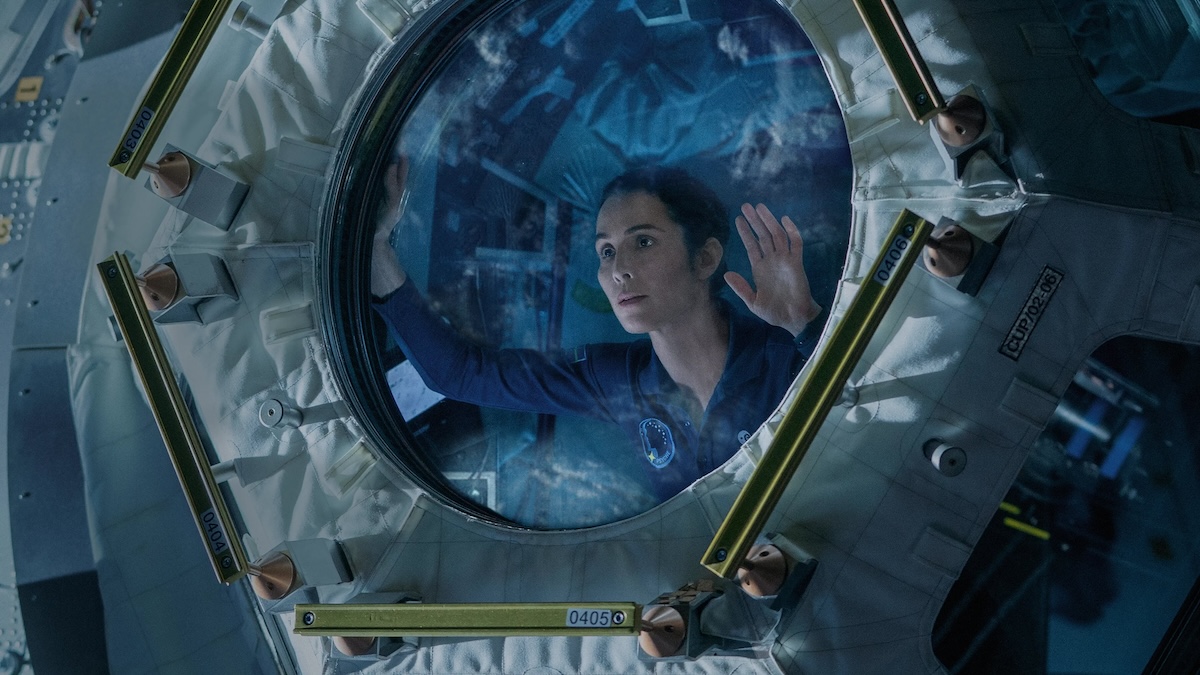
Showrunner and chief writer Peter Harness (Jonathan Strange & Mr Norrell) might be in full control of Constellation’s narrative, but with so many interwoven plot threads to follow, the emotional impact eventually fizzles out. The supposedly shocking conclusion left me wondering if it might be a reimagining of Ambrose Bierce’s An Occurrence at Owl Creek Bridge.
I had a similar experience with Dark. After three seasons spent grappling with the elaborate knotting of three separate timelines and multiple character arcs, the series tangled itself further by introducing a fourth timeline. Perhaps I’m deeply shallow, or a touch slow on the uptake, or maybe just tired, but I gave up on Dark at that point.
Similarly, the hall-of-mirrors antics of Everything Everywhere All at Once wore me out to the point where I didn’t care anymore. If all realities are the same, what does it matter? And why should we care when they collide? If this world does end, it seems there are plenty of others to carry on
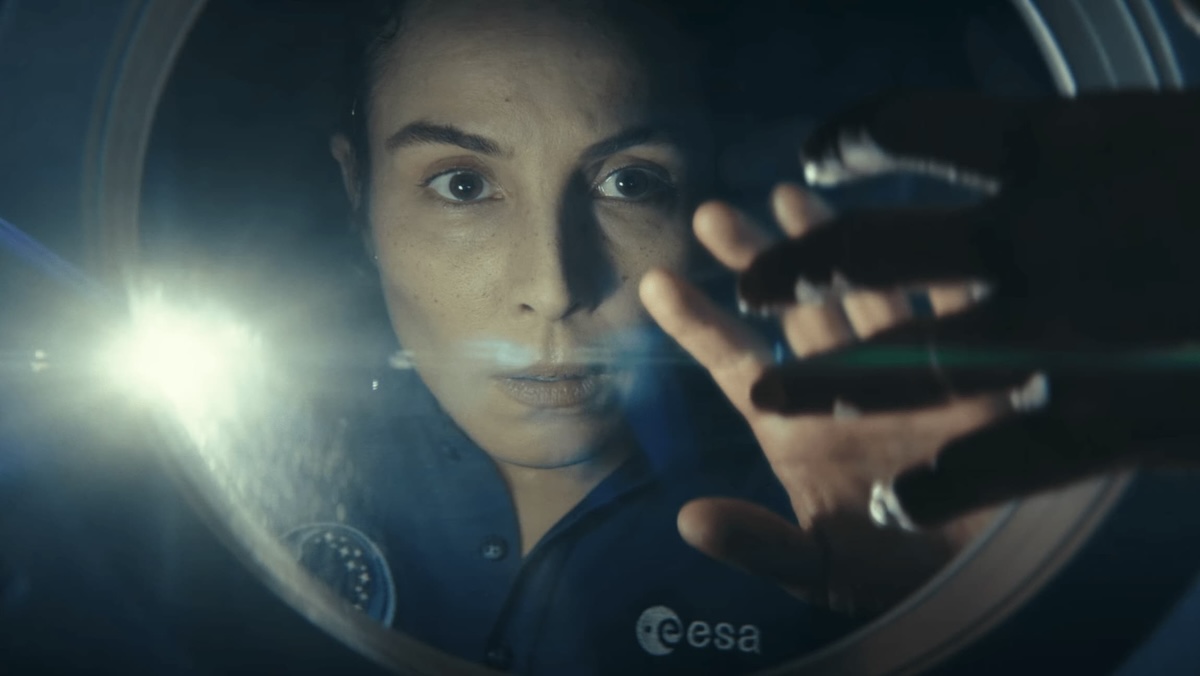
Like Dark and HBO’s Westworld (2016-2022), Constellation is a super-intelligent, ultra-cerebral puzzle that might play better with Mensa members and sci-fi superfans, leaving some viewers feeling out of their depth. These shows come across more as intellectual puzzles than dramas, weighed down by their plots as they explain and rationalise every detail of their universe. While intelligence is always a virtue, and films could certainly benefit from more of it, these shows seem consumed by their own intellect, with other elements, such as dramatic and emotional ones, suffering as a result.
For a better example of the multiverse genre, there’s Prime Video’s The Man in the High Castle (2015-19), adapted from a Philip K. Dick novel. This show does both itself and viewers a favour by explaining just enough of its multiverse underpinnings, and no more. Allowing it to thrum in the background simply gave viewers space and time to focus on a more grounded, albeit speculative, scenario: that the Axis Powers won World War II. Whatever High Castle’s other faults, it remained gripping right to the end.
In contrast, Constellation, entangled in its heady theoretical concerns about Space and Time, may leave you feeling not only confused but indifferent to the human concerns that should be at its centre. In the end, this ghost story lacks any ghostly frisson.
USA | 2024 | 8 EPISODES | 16:9 HD | COLOUR | ENGLISH


writer: Peter Harness.
directors: Michelle MacLaren, Oliver Hirschbiegel & Joseph Cedar.
starring: Noomi Rapace, Jonathan Banks, James D’Arcy, Rosie Coleman, Davina Coleman, William Catlett, Barbara Sukowa, Henry David, Sandra Teles & Carole Weyers.
